Supporting Country Wide Higher Education Management
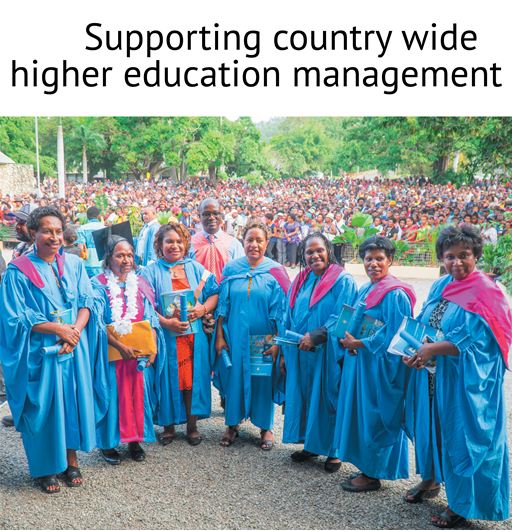
PCG Academia is proud to have work with Papua New Guinea Department of Higher Education, Research, Science and Technology (DHERST) for three years. During this time we delivered:
- National Online Selection System,
- National Online Application System,
- Scholarship Awarding Module.
National Online Selection System
National Online Selection System is a module that allows all stakeholders to fulfil their tasks as mandated by the PNG law: HEIs to select their students according to their arbitrary criteria and DHERST to facilitate and monitor the process to ensure its fairness. PCG Academia created an online module where each institution could create selectors accounts for its accredited programs. A selector could then prepare a program definition that contained:
- Description,
- Quota,
- Requirements,
- Ranking.
Institutions can split their quota for incoming students according to many sub-quotas to ensure a proper diversity of students.
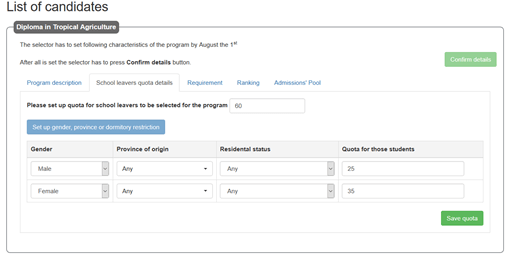
For the requirement and the ranking, selectors can use more than 60 metrics of candidates. An essential feature of the module is withholding of candidates personal information up to the selection, so it cannot be influenced by non-objective criteria.
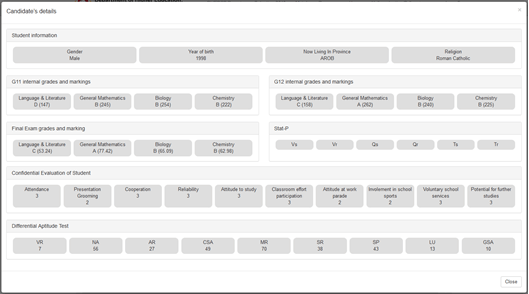
The selectors enter the requirement as a formula in a specially prepared query language. For the ranking, selectors can add their local preferences and use an online assistant to select and weight all the required metrics.
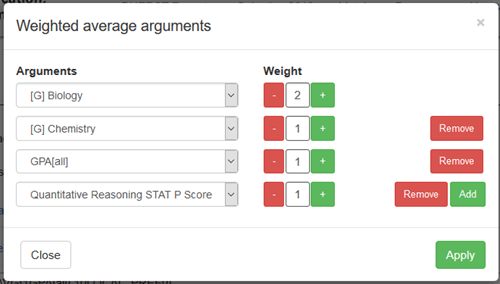
The actual selection module uses the Gale-Shapley algorithm that ensures optimal matching students to the programmes.
National Online Application System & Scholarship awarding module
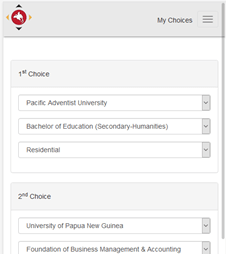
National Online Application System is a tool that allows all G12 school graduates to apply for any accredited programme in the country. Candidates can apply only to the programmes that match their exams. After the exam results are returned, the candidates can adjust their choices to replace the programmes for which the exam results are too low. A unique applications monitoring process ensured that all eligible candidates applied online in the country with low internet accessibility.
Scholarship awarding module allows the Department to fulfil its another obligation: administering financial support for the students. The authorised users can set up scholarships criteria following governmental policy for standard and preferred study programmes. Awardees are then selected and notified. They have to accept the scholarship offer with required legal obligations.

Currently, we are working on further modules to complete a toolbox to support a further development of higher education in the country:
- National Register of Higher Education Institutions, Programs,
- National Student Register.